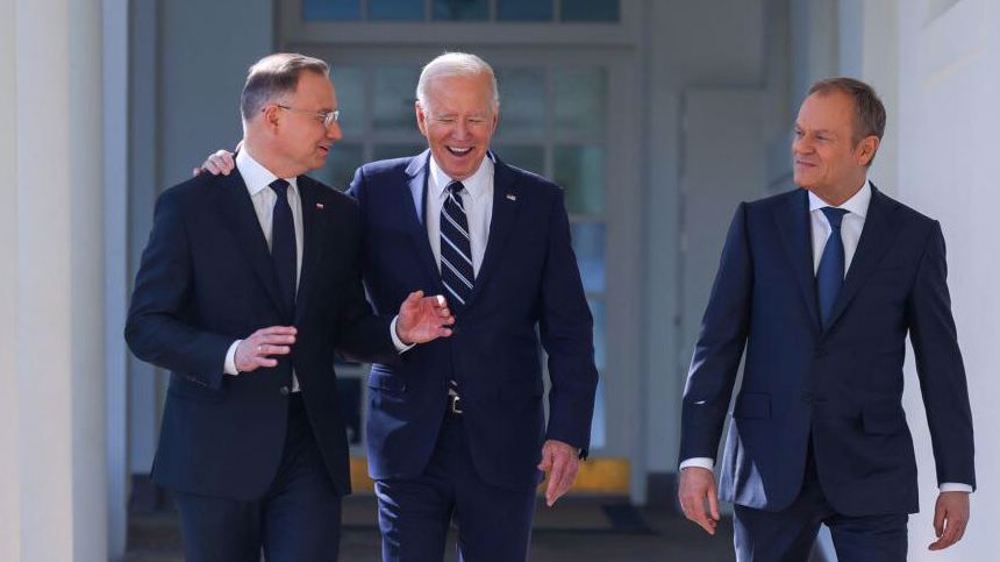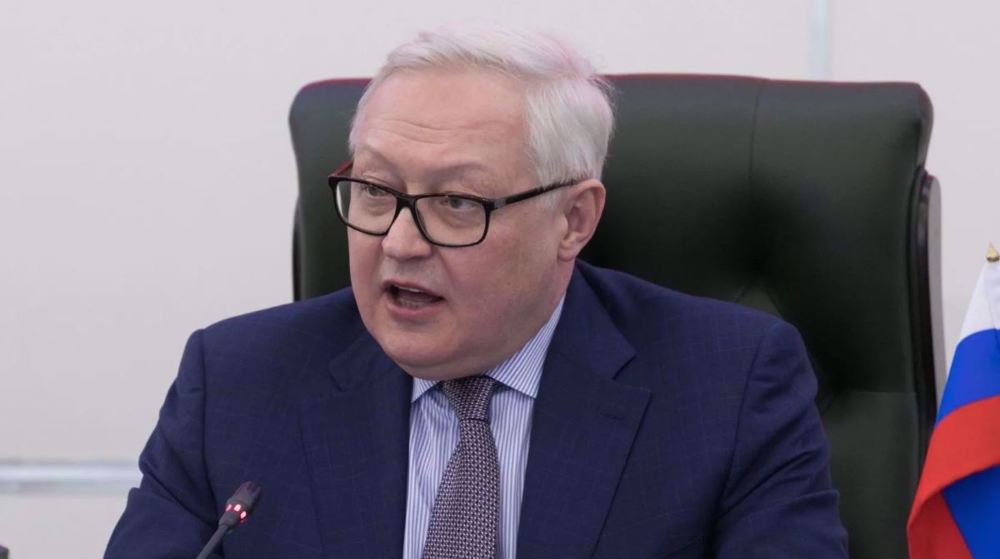Xi meets Brazilian VP amid China's push for greater presence in US 'backyard'
Chinese President Xi Jinping has met with visiting Brazilian Vice President Hamilton Mourao, as Beijing seeks to widen its presence in Latin America amid ongoing trade tensions with the United States.
During the meeting in Beijing on Friday, Xi hailed Brazil’s commitment to developing a strategic partnership with China and called for building bilateral ties into a model for solidarity and cooperation among developing countries, on that could contribute to global peace and prosperity as well.
“Both sides should continue to take each other as an opportunity and partner for their own development, and to respect, trust and support each other, and build the relationship between the two countries as a model of cooperation between developing countries and an important power facilitating world peace and development,” Xi told Mourao at the Great Hall of the People in the Chinese capital.

The Chinese head of state said the partnership has been developing steadily with fruitful results since they established diplomatic ties 45 years ago and would see more progress in the coming years.
“Cooperation between China and Brazil is bound to usher in a broader future,” the Chinese president said, adding that there were "broad prospects" for cooperation between Beijing and Brasilia.
Brazil willing to invest in New Silk Road
Xi also reiterated China's support for accelerating Brazil's growth, calling for closer cooperation and common development under the framework of the Belt and Road Initiative (BRI).
The BRI plan, also known as the One Belt One Road project and championed by the Chinese president, aims to link China by sea and land with southeast and central Asia, the Middle East, Europe and Africa, through an infrastructure network on the lines of the ancient Silk Road.
Mourao, for his part, underlined the importance of the Sino-Brazilian relationship and lauded China as a comprehensive, strategic and reliable partner.
“Brazil is willing to facilitate the synergy of its investment partnership projects with the Belt and Road Initiative and expand cooperation in areas including trade, science and technology, and innovation,” Mourao said, adding that Brazil welcomes more investments from China.
Read More:
Unlike Brazilian President Jair Bolsonaro, who often blasted the Chinese influence on Brazil's economy during his presidential campaign, Mourao has taken a more pragmatic approach towards his country's top trading partner and has sought to maintain commercial ties with Beijing.
Brazil will host this year's summit of the BRICS group of countries -- made up of Brazil, Russia, India, China and South Africa -- in November.
Chinese influence in Latin America rising
Xi has accelerated China's concerted diplomatic push in Latin America, a region that has for long been regarded by the United States as its "backyard."
World Bank data suggests that until 20 years ago, the US accounted for nearly 57 percent of exports by Latin American countries and 49 percent of their imports.
This is while trade with China in either direction remained in the low single digits. By 2017, however, the US share of the imports and exports had declined significantly, and China had established itself as a strong number two, accounting for 10 percent of exports and 18 percent of imports, with both numbers on the rise.
The BRI is expected to boost those number greatly.
American officials have repeatedly expressed concern about China's growing influence in the region.
The rivalry comes amid US President Donald Trump's trade war with China, which has seen him impose unusually heavy tariffs on imports from the country. Since then, the two sides have exchanged tariffs on more than $360 billion in two-way trade.
Yemeni armed forces strike British oil tanker in Red Sea
VIDEO | Press TV's news headlines
VIDEO | American, Israeli rabbis call for ceasefire during protest near Gaza
Iran calls for enhanced defense cooperation with Russia
US campus crackdown: 500 pro-Palestinian protesters arrested
VIDEO | Yemenis rally in Sana'a in solidarity with Palestinians in Gaza
VIDEO | Jordanians march after Friday prayers in support of Palestinians
Far-right Israeli minister Ben-Gvir injured











 This makes it easy to access the Press TV website
This makes it easy to access the Press TV website